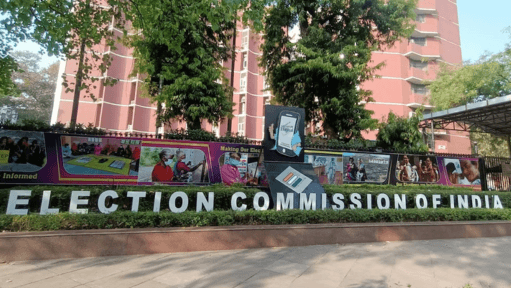
India Electoral Bonds: Lottery Company, Infra Firm Among Top Political Donors
From a lottery company with operations in multiple states, to a company that built the Kaleshwaram dam, to large industrial conglomerates, the top five purchasers of electoral bonds spent upwards of ₹3,446 crore between April 2019 and February 2024, data released by the Election Commission of India showed.
The highest donor, with bonds worth ₹1,368 crore, was Future Gaming and Hotel Services Private Limited, a company run by Santiago Martin, commonly known by the moniker “Lottery King”.
The company was the subject of an Enforcement Directorate investigation since 2019, with raids carried out in Coimbatore and Chennai in May 2023 for alleged violations of the Prevention of Money Laundering Act (PMLA).
Officials familiar with the case said that the ED probe is based on a Central Bureau of Investigation charge sheet that alleged the company sold lotteries from the government of Sikkim in Kerala.
“It was found that Martin and his associate companies and entities had made unlawful gain with a corresponding loss to the government of Sikkim to the extent of ₹910 crore on account of inflating the prize-winning tickets claim from April 2009 to august 2010,” ED said at the time, attaching assets worth ₹457 crorethat belonged to Martin and the company.
The company website explained its operations as having “developed a vast network of dealers, stockists and agents across different lottery playing states in India, wherever lottery sale are permissible”.
Martin, a company website said, began his lottery business in Tamil Nadu in 1988, extending operations gradually to Karnataka and Kerala, and then the north-east. The company now also has arms that deal with construction, real estate, hospitality and visual media entertainment.
The second biggest purchaser of electoral bonds at ₹891crore is Megha Engineering and Infrastructure Limited (MEIL), established in 1989 by 67-year-old Pamireddy Pitchi Reddy in Andhra Pradesh’s Krishna district and headquartered in Hyderabad.
The firm has built several projects such as the Kaleshwaram lift irrigation project on the Godavari river, and also has interests in hydrocarbons, roads, power, buildings, defence and telecom.
The Kaleshwaram project has been besieged by controversy after piers of the Medigadda barrage were submerged last year, with the Congress, which is now in power in Telangana, accusing the previous Bharat Rashtra Samithi government of mismanagement and corruption.
MEIL has also been involved in several other key projects, including the Polavaram dam project, Mission Bhagiratha -- a Telangana government drinking water project -- the Thoothukudi thermal power project and the Zojila tunnel project.
While the ownership of Qwik Supply Chain Private Limited was less clear, Zaubacorp -- a website that tracks the ownership of companies -- suggested that one of its directors was also a director in a Reliance Group company.
Vedanta Private Limited, the industrial conglomerate founded by Anil Agarwal that has interests across sectors including mining, technology and power, is the fourth highest donor with purchases worth ₹400 crore over the five-year period, according to the data.
The company website describes Vedanta as a leading natural resources and technology conglomerate, focusing on large scale expansion of its portfolio in India.
Haldia Energy Limited, a group company of the RP-Sanjiv Goenka Group, is the fifth highest donor in the scheme, buying bonds worth ₹377 crore.
The company has developed a 600MW thermal power plant in Haldia in West Bengal that supplies power to Kolkata and its suburbs.
“The units began commercial operation from January 2015 onwards. The company supplies its power to CESC Limited, the distribution licensee for the city of Kolkata,” the company website said.
Supreme Court Raps SBI
Meanwhile, the Supreme Court today came down hard on the State Bank of India for not sharing the complete data on electoral bonds, a scheme that allowed individuals and businesses to donate anonymously to political parties. The court had struck down the scheme and directed the bank to share all details on the donations made in the last five years.
Hearing a petition by the Election Commission, the Supreme Court said that the data provided by the SBI was incomplete. The five-judge bench, headed by Chief Justice DY Chandrachud, directed SBI to disclose electoral bond numbers as well, in addition to the details it has already shared.
"Who is appearing for the State Bank of India? They have not disclosed the bond numbers. It has to be disclosed by the State Bank of India," Chief Justice Chandrachud said right at the outset of the hearing.
In its notice to SBI, the Supreme Court bench has asked the bank to explain the lapse during the next hearing on March 18.
The electoral bond numbers would help establish the link between donors and political parties.
Electoral bonds allowed individuals and businesses to donate money to political parties without declaring it. They were introduced by the BJP government in 2018 as an alternative to cash donations and had been pitched as an initiative to bring transparency in political funding.
For any enquiries or information, contact ask@tlr.ae or call us on +971 52 644 3004. Follow The Law Reporters on WhatsApp Channels.